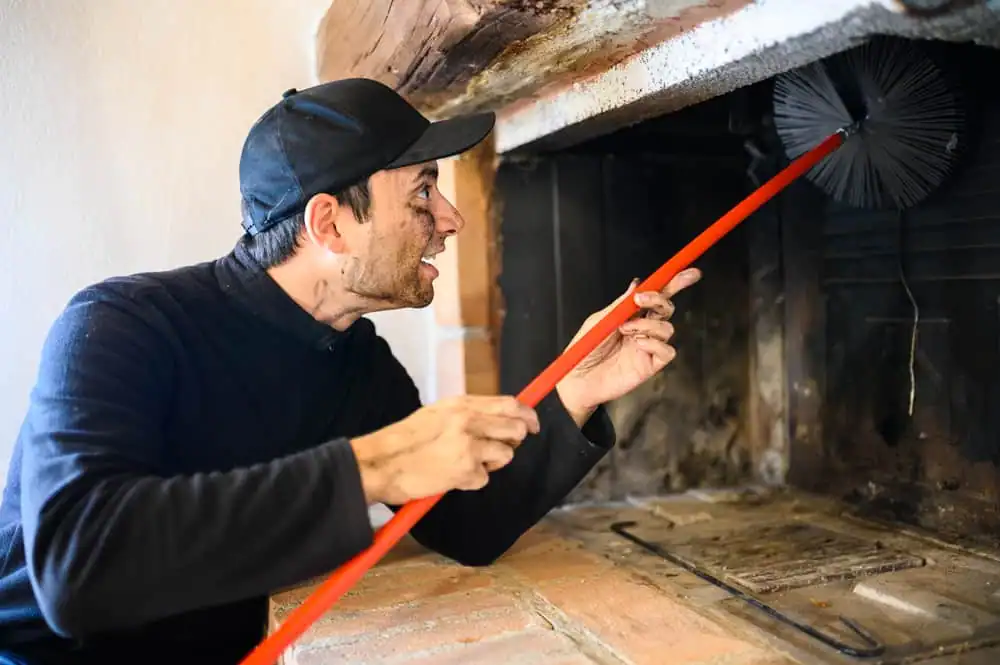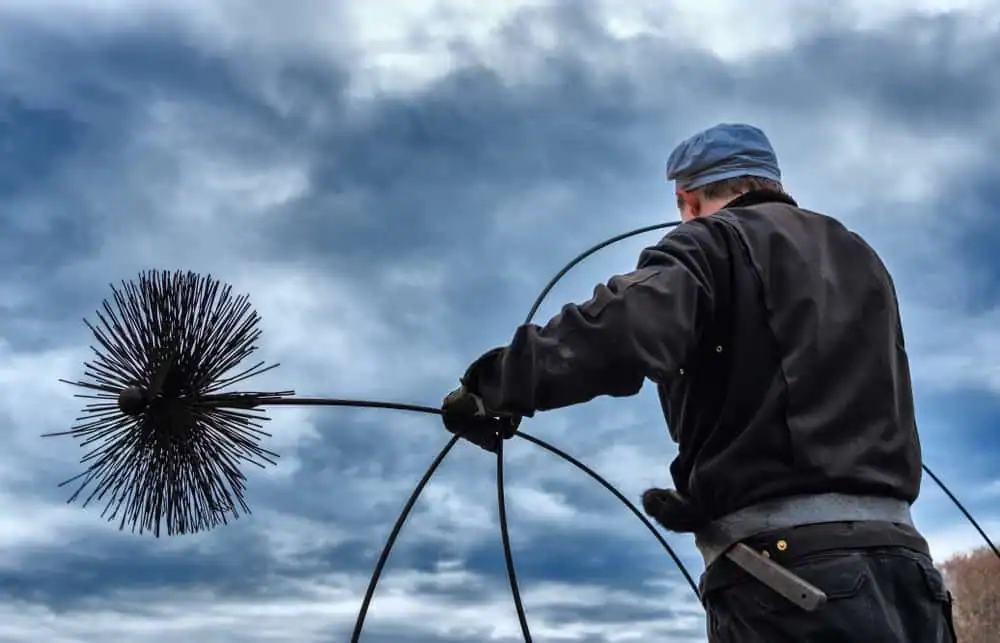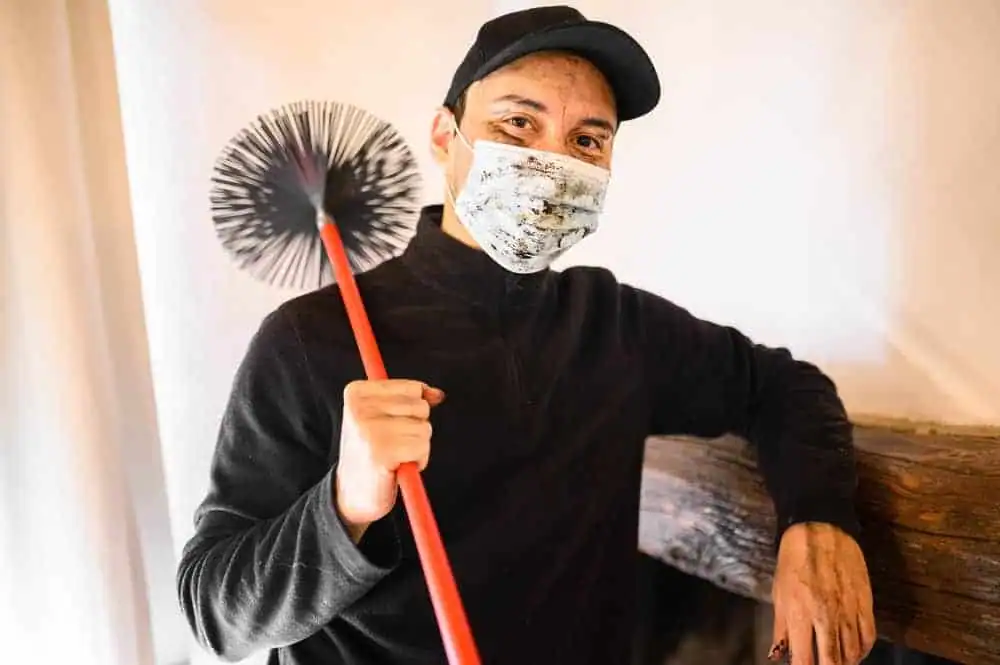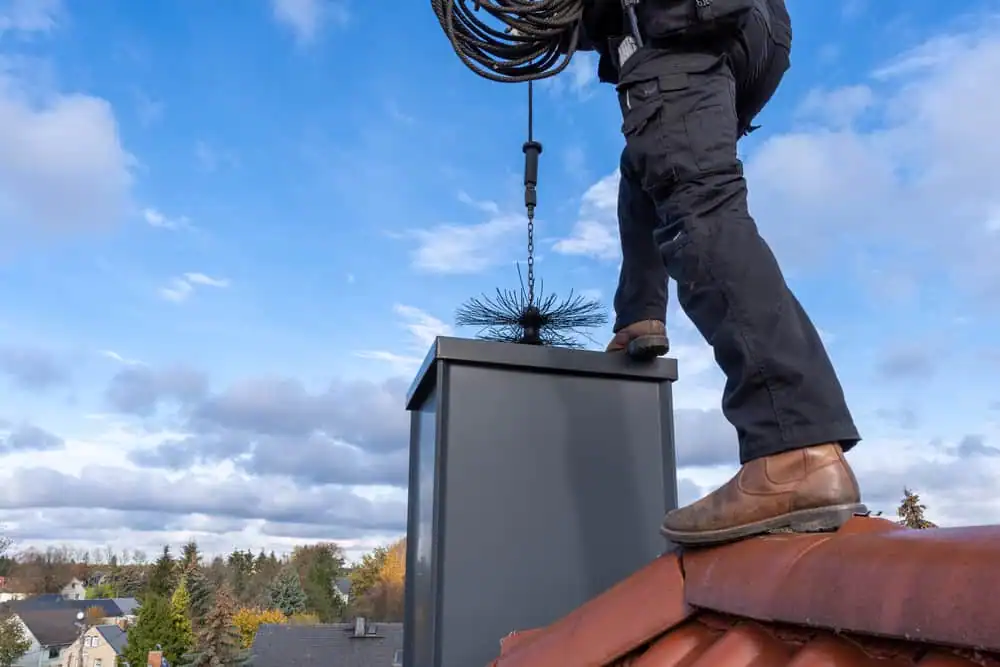Triple-certified chimney sweeping that keeps your North Caldwell home safe and your family protected from fire hazards.

Hear from Our Customers

You light your fireplace expecting warmth and comfort, not worry about whether your family is safe. When creosote builds up in your chimney, it creates a ticking time bomb that can ignite at just 451 degrees Fahrenheit. That’s why professional chimney sweeping isn’t just maintenance—it’s protection.
A properly cleaned chimney doesn’t just prevent fires. It improves your fireplace’s efficiency, eliminates dangerous carbon monoxide risks, and removes that unpleasant smoky odor that signals trouble. You get better heat output, cleaner air, and the confidence that comes from knowing your home’s heating system won’t put your family at risk.
After our certified chimney sweep, you’ll notice the difference immediately. Your fireplace draws better, burns cleaner, and operates the way it should. Most importantly, you can enjoy those cozy winter evenings without wondering if you’re gambling with your family’s safety.
For over 40 years, we at Apex Air Duct Cleaning & Chimney Services have been the company North Caldwell residents trust when safety matters most. We’re not just another chimney service—we’re the only company in New Jersey with triple certification from CSIA, NFI, and NADCA.
This isn’t about bragging rights. These certifications mean we understand chimney safety, fireplace systems, and air quality standards at a level most companies simply can’t match. When you’re dealing with fire and carbon monoxide risks in your home, you want someone who knows exactly what they’re doing.
North Caldwell’s older homes, many built in 1959, require expertise that comes from decades of experience. We’ve seen every type of chimney problem this area presents, from the common creosote buildup to the complex structural issues that can develop over time. Our licensed and insured team approaches every job with the same commitment to safety and quality that’s kept us in business for four decades.

Our chimney sweeping process starts with a thorough inspection using advanced camera equipment to assess your chimney’s condition. We check for creosote buildup, structural damage, and any obstructions that could affect performance or safety. This isn’t a quick look—it’s a comprehensive evaluation that tells us exactly what your chimney needs.
Next, we protect your home with drop cloths and set up our professional-grade equipment. We use specialized brushes and tools designed for different types of creosote buildup, from the light, sooty deposits to the hard, tar-like substances that require more aggressive removal techniques. Our EPA-approved products ensure we’re not just cleaning effectively, but safely.
The actual cleaning process removes all creosote, soot, and debris from your chimney’s interior surfaces. We work methodically from top to bottom, ensuring every inch of your flue is properly cleaned. After cleaning, we conduct a final inspection to verify the work is complete and provide you with a detailed report of our findings. If we discover any issues that need attention, we’ll explain them clearly and give you honest recommendations for repairs.

Ready to get started?
Our chimney sweeping service includes complete creosote removal, debris cleaning, and a comprehensive safety inspection. We don’t just clean your chimney—we evaluate every component that affects its performance and safety. This includes checking your chimney cap, crown, flashing, and liner for damage or wear.
North Caldwell’s climate presents unique challenges for chimney maintenance. The freeze-thaw cycles common in our area can cause masonry damage, while the humid summers can accelerate creosote hardening. Our local expertise means we know what to look for and how to address these regional concerns effectively.
You’ll receive a detailed report documenting our findings, including photos of any issues we discover. We explain everything in plain language, so you understand exactly what’s happening with your chimney and what, if anything, needs attention. Our goal is to keep you informed and your family safe, not to oversell services you don’t need.
